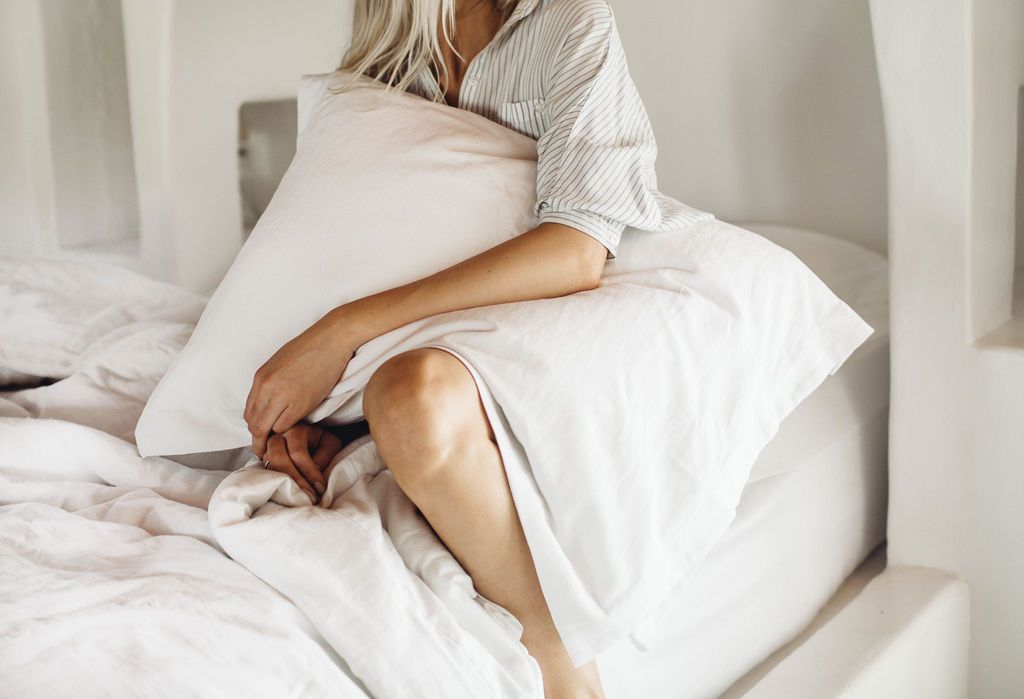"Is Bamboo the softest fabric"
It's no secret you came here from google typing that in or something close to it, but it should really be re-worded to, does bamboo make the softest fabric?
This is an important distinction because unlike cotton, bamboo by itself is just a green plant. Bamboo needs to be taken from a hard, green plant and made into a fabric.
So how do you get fabric from bamboo?
The process for creating a bamboo fabric is actually a lot simpler than you might think.
First the bamboo is chopped up into chips and pulped with natural compounds, carbon disulfide and sodium hydroxide.
Many people have been concerned about the use of chemicals when making a bamboo fiber, but as the process has developed it’s gotten much cleaner and now all the compounds used are re-used and recycled.
Continuing with the process, after its crushed and pulped it gets milled into a super soft, fluffy material.
Like cotton, it then gets spun into a usable yarn.
Does this make bamboo the softest fabric?
YES! This process makes a luxuriously soft textile. People often want to know what it feels like before buying something made of bamboo.
I place bamboo directly in-between cotton and silk in terms of the feel. Bamboo is very smooth without being slippery and incredibly soft to touch.
So what can this soft bamboo fabric be used for?
Historically bamboo was only used for different structural elements like the ribs of corsets and bustles.
Today 100% bamboo fabric is used in bedding and in fashion.
Starting with Bamboo sheets, they are incredibly dreamy and a must have for anyone looking to take their sleep game to the next level.
A writer from the Huffington said about bamboo sheets,
“Comfort to the max with twice as soft as cotton threads make these sheets a keeper”.
They've been ranted and raved over for awhile so I won't go into detail, but the short is, they are incredibly smooth, cool, and wildly soft.
You only need to sleep in them once to understand the hype.
The drawback of using bamboo fabric.
One con of bamboo sheets and bamboo fabric in general is they do have a tendency to wrinkle easier than cotton and they are more delicate as well. It’s because they are more delicate that manufacturers don’t treat them with formaldehyde to have them wrinkle less.
Yes, you read that right. Without getting on too much of a tangent, if you bought cotton sheets that are marketed as, “wrinkle free”.
You are almost certainly sleeping with sheets treated with an embalming chemical. The government doesn’t regulate formaldehyde so bedding companies don’t need to list it.
This is bad news for people with sensitive skin since the EPA labeled it a possible health hazard that can induce watery eyes, burning sensations in the nose, eyes, and throat.
Dramatic? Maybe, but I'll be sticking with bamboo sheets.
Are bamboo sheets the only thing you can make with bamboo?
Not even close.
T shirts made with bamboo are incredibly soft and keep their soft properties for so long. I’ve had some bamboo t shirts for years and its like putting on your favorite pair of jeans that just fit right and feel right.
Bamboo apparel is softer than the softest cotton and has a natural sheen like cashmere and silk. It is also less expensive, and it is also more durable and blends well with soft cotton
Bamboo socks, bamboo blankets, bamboo towels, even bamboo comforters. All sorts of things can be made with bamboo.
We’ve even developed a bamboo linen hybrid fabric. It takes the best properties of bamboo, mainly the softness and smoothness, and weaves them with linen.
This new fabric has the appearance of classic linen but is much softer. That’s why it was made into a duvet cover. Classy look, soft feel, temperature regulating, its one of the best things to come out of the bamboo fabric market.
Learn more about the bamboo linen duvet cover here.
The benefits of bamboo on the environment and why it’s the future of textiles.
- Cleans the air. Bamboo can provide clean air to breathe and consumes carbon dioxide, because a bamboo forest is so dense it can return 30 % oxygen to the atmosphere.
- It requires less energy and water to grow. It is easy to sustain bamboo plant that will be used for the bamboo fiber production and requires little maintenance. It also requires little water to survive in drought conditions and even in flooding as well.
- Can grow without pesticides. Bamboo is the only plant that does not need chemical pesticides because it has its own anti-bacterial agent in its stem.
- Sustainable to harvest. It is one of the fastest growing plants on earth that offers complete regeneration even without a need of replanting.
- 100 % biodegradable. Bamboo clothing is safer to disposal either it is incineration or landfill.
So back to the original question and why you came here.
Is bamboo the softest fabric?
Yes, and it does so much more. It wicks sweat, is breathable, blocks UV rays, is soft, temperature regulating and is great for the environment.
There is no doubt that in the future there will be even more improvements on the actual manufacturing process making bamboo fabric even more sustainable.
Out with cotton, in with bamboo!
What things would you like to see made of bamboo fabric?

